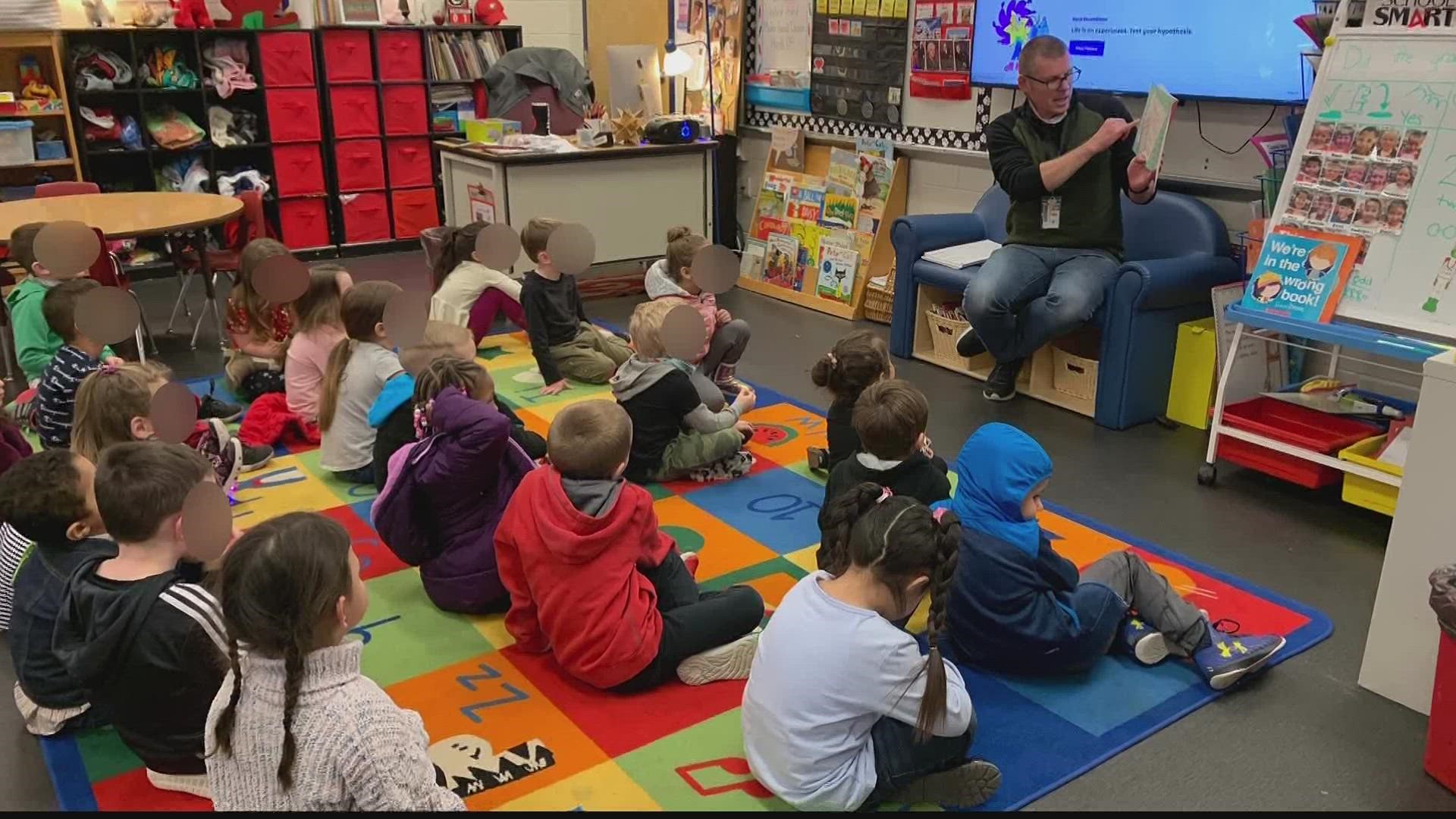ATLANTA — Four metro Atlanta school districts - City Schools of Decatur, DeKalb County Schools, Marietta City Schools, Jackson County Schools - are part of a pilot program to help identify and support students with dyslexia.
However, the upcoming school year is the last year to test that program out before a state mandate goes into effect in 2024. That mandate will require statewide screening, identification and support for students in kindergarten through third grade with dyslexia.
It’s something that could have helped Joshua Bieber as he was going through school. Bieber knew as early as Kindergarten that his way of learning was different.
“Doing the alphabet book, putting each word for a letter took me like nine hours,” he said.
Around 3rd grade, Bieber was diagnosed with dyslexia, a learning disability that affects how the brain processes information. His parents helped equip him with intensive intervention early that helped him succeed.
Now a 22-year-old graduate student at UGA, Bieber is using his own experience to fuel his desire to help other kids as he works toward a degree in special education.
“I can say I know we’re different, but we both have gone through the system. And you know, I’m just here to relay that. It brings a different level of respect, I think, in the classroom,” he said.
In 2019, Gov. Kemp signed Senate Bill 48 into law. It created a statewide dyslexia handbook, a Dyslexia Endorsement program to help educate teachers on the disability, and a 3-year pilot program to test out ways districts can identify and help students with Dyslexia before a state mandate goes into effect in 2024.
That can be a scary statistic for teachers like Nathan Leatherwood, who has 20 to 25 students in his classroom.
Leatherwood is also skeptical teachers and districts will be ready for all the work the state mandate requires come 2024.
“I speak for myself because there were many misconceptions about dyslexia that I had even though I was a veteran teacher,” he said.
Leatherwood taught primary school for 25 years and chose to take the new Dyslexia Endorsement Education Program when he learned his youngest son, Boland, was dyslexic.
“I pursued the dyslexia program at UGA hoping to find help for him,” he explained. “The program was wonderful because it was research-based, but it also offered me practical strategies to use with him at home and with my students once we were able to return in person.”
Boland begins fourth grade this fall and his dad knows he’ll need continued support to be successful in the classroom.
“If 20% of kids have dyslexia or could have dyslexia, they need more strategies and more tools to use,” Leatherwood added. “There’s no quick fix. So, that’s an invaluable thing that I’ve learned.”
Marietta City Schools Executive Director for Academics Dr. Jennifer Hernandez said people would likely be surprised how prevalent dyslexia is in the classroom.
“I think there’s some misunderstanding about what dyslexia is. People don’t understand that it’s neurobiological and the importance of early intervention,” she said.
Marietta City Schools applied to be part of the pilot program through the Department of Education.
“The DOE was looking for specific criteria, like people who already had structured literacy programs in place, were kind of moving in that direction, and used some type of universal screener to try to identify students who had weaknesses,” Deputy Superintendent Dr. Belinda Walters-Brazile explained.
Currently, four elementary schools in the district are participating in the pilot program, which Dr. Hernandez oversees.
She explained that all students in kindergarten through third grade for through the screening, determine which students need further testing and who might need specific intervention.
“We identify students for participation in the pilot, and then at three of our schools, they are on a program called Mind Play that provides specific intervention and instructional support where they are. Then they also receive teacher intervention through Orton-Gillingham Strategies in a small group. And then, at one of our schools, everything is led through a small group with a teacher,” Dr. Hernandez said.
Dr. Walters-Brazile describes it as a big lift but one that's definitely needed.
"We’ve taken things off teacher’s plates that we felt that we could, added on these new strategies that we felt were really important. So, we’re trying to find that balance,” she said.
In May, the DOE announced $1.9 million in grants to help educate teachers on dyslexia. UGA also produced several videos for the Department of Education dispelling common myths about the learning disability.
- What is Dyslexia? https://tinyurl.com/mt7bemsh
- Reading Development and Dyslexia https://tinyurl.com/2ath7hzs
- Dyslexia and the IDEA https://tinyurl.com/2p9eyt5z
- Structured Literacy and Dyslexia https://tinyurl.com/5byj53nt

